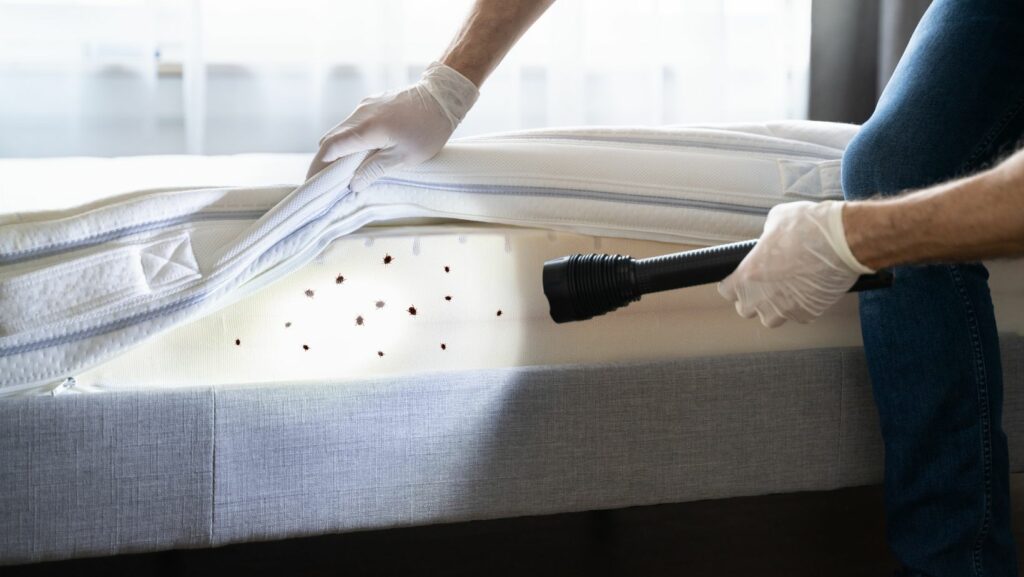Can you vacuum bed bugs? It’s a common question for those dealing with a bed bug infestation. Bed bugs are tiny pests that can cause big problems, and many people wonder if vacuuming can help eliminate them. Unfortunately, the answer is not as straightforward as one might hope.
While vacuuming can be an effective part of a comprehensive approach to bed bug control, it’s important to understand its limitations. Vacuuming alone may not be enough to completely get rid of bed bugs. These resilient creatures can hide in cracks and crevices that are difficult for vacuums to reach.
However, vacuuming can still play a role in managing a bed bug problem. By regularly vacuuming infested areas, you can remove live bugs and their eggs, reducing the population over time. It’s crucial to use a vacuum with strong suction power and a HEPA filter to ensure that captured bed bugs don’t escape or spread further.
Table of Contents
ToggleCan You Vacuum Bed Bugs
Bed bugs are small, brownish insects that feed on the blood of humans and animals. They can be a nuisance and cause discomfort if they infest your home or bed. In order to effectively deal with these pests, it’s important to know how to identify them.
- Appearance: Adult bed bugs are oval-shaped and about the size of an apple seed. They have flat bodies before feeding, but after feeding, they become swollen and elongated. Their color can vary from translucent white or light yellow when unfed to reddish-brown after feeding.
- Physical Signs: Look for signs of bed bug activity in your sleeping area. Check for dark stains or spots on bedding, mattress seams, and nearby furniture caused by their droppings or crushed bugs. You may also notice small red bite marks on your skin upon waking up.
- Eggs and Nymphs: Bed bug eggs are tiny (around 1mm) and pearly white in color. They are often found in clusters or rows along mattress seams, headboards, and other hiding places near where people sleep. Nymphs are immature bed bugs that resemble adults but are smaller in size.
- Distinct Odor: Bed bugs release a musty odor described as sweet almonds or raspberries when they aggregate in large numbers. This distinct smell can sometimes be detected when there is a heavy infestation.
- Hiding Places: Bed bugs are skilled at hiding during the day and emerging at night to feed on their hosts while they sleep. Common hiding places include crevices in mattresses, box springs, bed frames, headboards, baseboards, cracks in walls, or furniture joints.
- Visual Confirmation: If you suspect you have an infestation but cannot find any physical signs of bed bugs yourself, you may want to consult a pest control professional who can perform a thorough inspection and confirm their presence.

The Dangers of Bed Bug Infestations
1. Allergic reactions: Bed bug bites can cause allergic reactions in some individuals. Symptoms may include itching, redness, swelling, and even severe rashes. While not everyone reacts to bed bug bites, those who do may experience discomfort and irritation.
2. Psychological impact: Dealing with a bed bug infestation can take a toll on your mental health. The constant fear of being bitten during sleep can lead to anxiety, insomnia, and increased stress levels. The psychological impact of living with bed bugs should not be underestimated.
3. Secondary infections: Scratching bed bug bites can break the skin’s barrier, making it susceptible to secondary bacterial infections. These infections can range from mild skin irritations to more serious conditions requiring medical attention.
4. Spread of pathogens: Although rare, there have been reports of bed bugs carrying disease-causing pathogens such as MRSA (Methicillin-resistant Staphylococcus aureus) and Chagas disease parasites. While they are not known to transmit diseases directly through their bites, the potential for transmission exists if proper hygiene practices are not followed after being exposed to an infestation.
5. Sleep deprivation: Bed bugs are notorious for disrupting sleep patterns due to their nocturnal feeding habits. Constantly waking up in the middle of the night due to itching or discomfort can result in sleep deprivation and its associated consequences, such as fatigue, decreased cognitive function, and impaired immune response.

